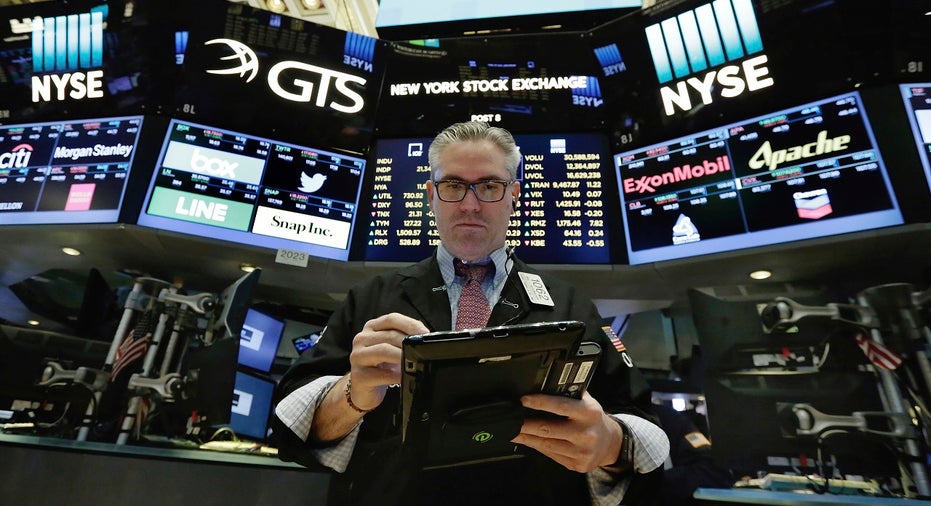Weak inflation continues to hold down bond yields

U.S. government-bond yields startled many investors in the year's first half by falling, yanking the rug out from under expectations that a recovery in inflation would drain cash from the credit market.
The yield on the benchmark 10-year Treasury note settled Friday at 2.298%, down from 2.446% at the end of last year and well below its recent peak of 2.609% set in March. Yields fall when bond prices rise.
Weaker measures on inflation are a big reason for the yields' decline. Inflation is perhaps the biggest threat to long-term government bonds because it erodes the purchasing power of their fixed returns. Softening inflation then bolsters demand for Treasury debt, driving down yields.
After reaching 2.1% in February, the Fed's preferred gauge of overall inflation rose just 1.4% in May from the prior year. Core inflation, which excludes energy and food prices, has slipped to 1.4% from 1.8% in February.
This came as a surprise to many investors who anticipated inflation would surge as lawmakers cut taxes and unleashed a flood of fiscal spending under a new presidential administration. Now those expectations are diminishing, especially as a retreat in oil prices threatens to weigh down costs for a broad range of products.
Many observers now question whether the Federal Reserve's 2% target is really within reach.
"The Fed has been trying to get inflation to 2% for a long time now," said Donald Ellenberger, senior portfolio manager at Federated Investors. As the Fed starts to tighten monetary policy, "the market is saying you're really never going to get to 2%," Mr. Ellenberger said.
Inflation has become such a focus for credit-market investors that it has overwhelmed concerns about what the Federal Reserve is doing. Yields have declined even as the Fed has raised interest rates twice this year and signaled the possibility of another increase in the second half of the year.
Some bond investors say that it almost doesn't matter what the central bank does unless inflation picks up. The Fed could respond to lackluster inflation by keeping rates steady, which typically supports Treasury prices. Or it could keep raising rates, but that might only further depress inflation expectations, providing still more reason to buy bonds.
"It could be a combination of both of those scenarios," said Sean Simko, head of fixed-income portfolio management at SEI Investments. "The end result is still that rates are not going to go as high as everyone had expected."
Optimism that the Trump administration would usher in a new era of economic growth driven by fiscal rather than monetary policy has dissipated. That was punctuated by the 10-year yield's largest one-day decline in nearly a year on May 17, after reports that President Donald Trump may have interfered with an FBI investigation.
Also undermining that optimism is the lack of success GOP lawmakers have had in fulfilling their promise to overhaul the health-care system, even as opposition mounts to some of their tentative tax proposals.
Several investors said Congress now has a long way to go to win back their confidence that it can pass fiscal stimulus in the form of tax cuts or infrastructure spending. "It would take a tax bill to be delivered and voted on for the market to take that seriously again," said Brian Battle, director of trading at Performance Trust Capital Partners LLC.
Some investors say yields can't fall much further from here. Recent hints that some major central banks could be moving closer to unwinding their monetary stimulus has already unsettled traders, lifting yields from their 2017 lows.
In addition, higher interest rates set by the Fed have generally provided a floor for Treasury yields. Few analysts see risks of a recession soon, and geopolitical risks have abated in the aftermath of France's presidential election, diminishing the chances of a pronounced flight to haven assets.
At current levels, there is more room for yields to rise than to fall, said Jim Caron, fixed-income portfolio manager at Morgan Stanley Investment Management.
The 10-year yield is unlikely to drop below 2%, but could rise as high as 2.75% if Congress manages to pass fiscal stimulus, he said.
Write to Sam Goldfarb at sam.goldfarb@wsj.com



















